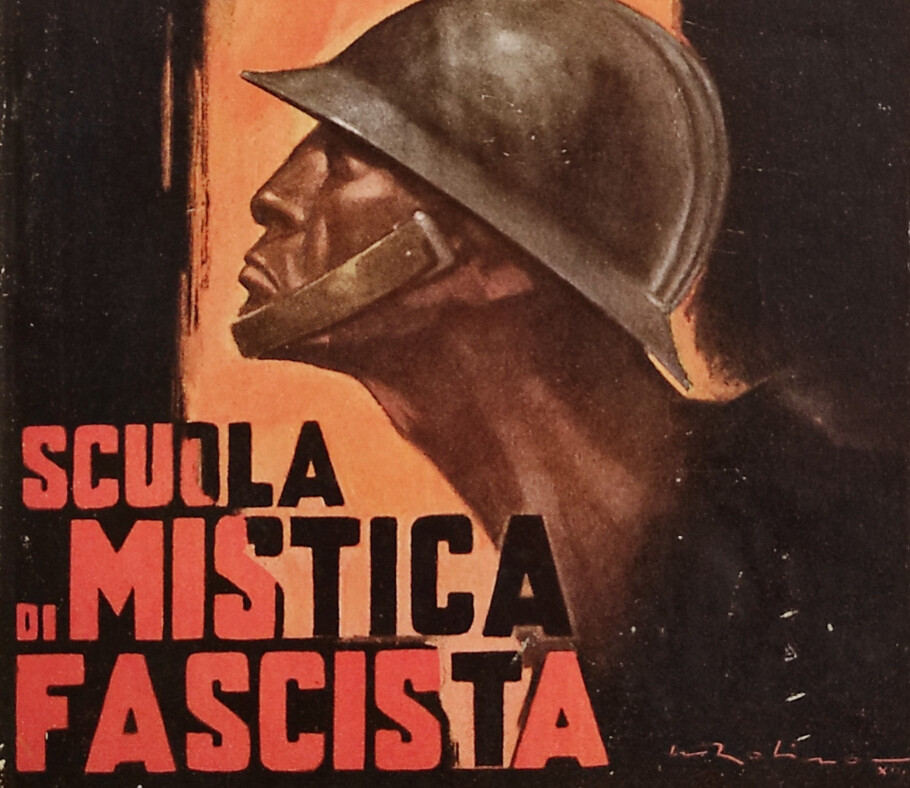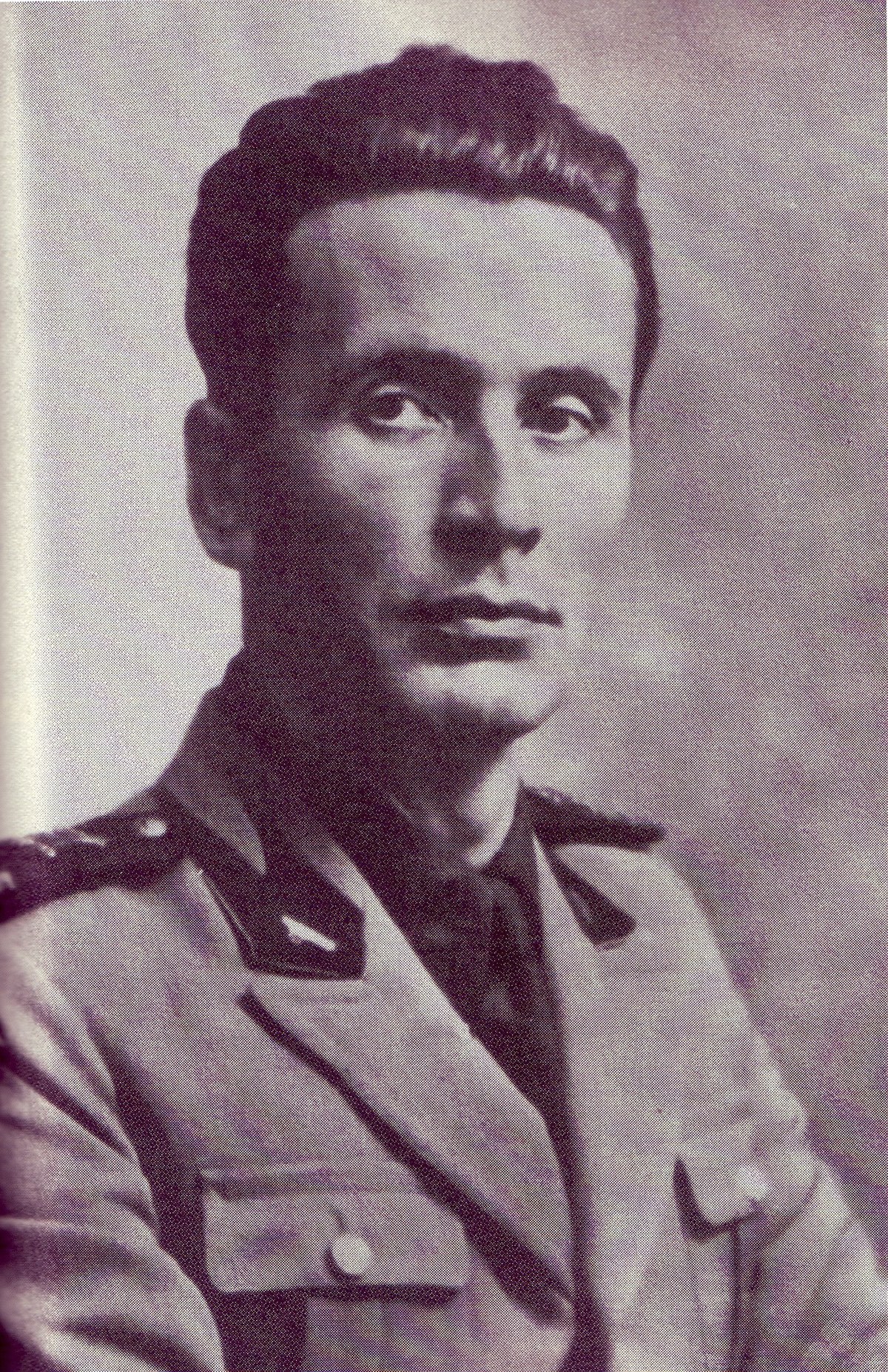While the role of esotersim in Nationalsocialism has been studied in depth, to some extent even too much (given that only Himmler was truly interested in these matters, and maybe Hess, but in this latter case I have my doubts that he was more a rational scholar rather than a true believer like Himmler), its presence in Fascism has got much less attention. The most comprehensive book which I know (not that I am an expert in this field, anyway) is "Esoterismo e Fascismo" by Gianfranco de Turris, Edizioni Mediterranee, 2006. I have bought it years ago but never read it "from cover to cover", but, from this source and some other ones about Evola, I have got the impression that in the early Twenties some people outside Fascism tried to influence it towards a neo-pagan course, at least ideologically if not ritually (classical rituals have disappeared in Italy since the late Roman Empire, and the survival of peasants' rites arrived to the lower middle ages, when they were fully replaced by Christian rituals or abolished), but without any concrete success nor support from top-tier fascists, least of all Mussolini.
These pagans were often linked to freemasonry, which made them de facto enemies of Fascism even before its foundation, given Mussolini's personal opposition to this organization since at least the beginning of the XX century, when he clashed with his fellow socialist Matteotti about this matter (Matteotti was a freemason himself and was in favour of the presence of freemasons in the Socialist Party). Among these men we can recall
Arturo Reghini and the "Gruppo di Ur".
Probably the man who had the highest success among the neo-pagans was
Julius Evola. First of all, he was not a freemason and was very critical towards freemasonry, making his position more palatable to Mussolini. At the same time, Evola evolved from being a follower of neo-pagans in the early Twenties to his own view of Tradition, which created in turn a prolific and successful cultural heritage (of course "successful" within the limits of a fringe movement). Yet, Evola changed his position from a rather old-fashioned neo-paganism to a philosophical and political, but not religious, position, and in fact none of his closer followers ended up a pagan. Anyway, Evola's political zenith was reached during the Italian Social Republic, when he finally had some superficial relevance, but when, at the same time, he was not a neo-pagan anymore. His evolution was probably due also to his deep knowledge, shared by Mussolini, of the theories of Oswald Spengler, who correctly noted that the classical civilization had already died out by the early Christian era, therefore making any neo-pagan revival just an attempt to resurrect nothing more than a corpse.
Given
father Tacchi Venturi's influence on Mussolini since 1925 and then the Lateran Pacts, anyway, the official position of Fasiscm towards neo-paganism was of opposition or, at best, of contempt. Moreover, also fascists who were freemasons in their youth, like Balbo, were also concrete people who, as any typical Italian until a few years ago, may even tell he is an atheist, but has been baptized, has studied cathechism, sooner or later has got married in church and wants a Christian funeral anyway. The fictional character Peppone in the novels about
Don Camillo by
Giovannino Guareschi (they have been translated also in English) is a perfect example of this kind of Italian man and, after all, Mussolini, Balbo, Grandi, etc. were born in the same region of this author and his realistic creatures.
A final note about Fascism and the Roman Empire. I really cannot understand why outside of Italy it is regarded as absolutely obvious that Fascism wanted to recreate the Roman Empire, or something like this. Frankly this is completely absurd: while Fascism borrowed some terms from the Latin times and surely stressed the ties between the present Italian nation and the Roman people (a tie that, after all, is not that far-fetched, given that every people in the world do the same, and almost always with ancestors which are either not exactly historically relevant as the Romans or quite less linked to them - just think about those nations which speak languages completely different from those of their ancestors, like the British or the French with the Celts; the
Sopranos are right!), the Roman past did not influence it anymore.
Moreover, the fashion (because Fascism is a modern ideology and, at its birth, it was fashionable and up to date, its hymn was "
Giovinezza" - "Youth" - after all!) of Roman antiquity had been a constant in Italian history, with highs and lows, since the early humanism, just think about
Cola di Rienzo or the whole Renaissance and Neoclassical movements, and had a great revival in the late XIX century, mostly by those same freemasons who used it in opposition to the temporal power of the Church. The huge "
Altare della Patria" (Altar of the Fatherland) in Rome was not a Fascist, but a Liberal monument, built under the auspices of the freemason prime minister
Zanardelli and the freemason and Jewish mayor of Rome
Ernesto Nathan (the right of vote was limited to rich men, and the catholic ones often didn't vote for opposition to the Kingdom that had occupied the Papal States, following the "
non expedit" doctrine). The "
Inno a Roma" by Puccini was composed in 1919, and already during the War of Libya the same Roman rethorics, which sounds so odd to contemporary Italian ears, later employed during Fascism was full rampant. Mussolini was called "duce" already when he was a socialist (see De Felice, "Mussolini il rivoluzionario 1883-1920", p. 110, for an article published in 1912 in which Mussolini is called "duce", a word more employed and of a broader meaning than it had after WW1, when it got its full political use), and the first political movement called "Fasci" were the "
Fasci siciliani" in 1889, a leftist and libertarian proletarian organization.



